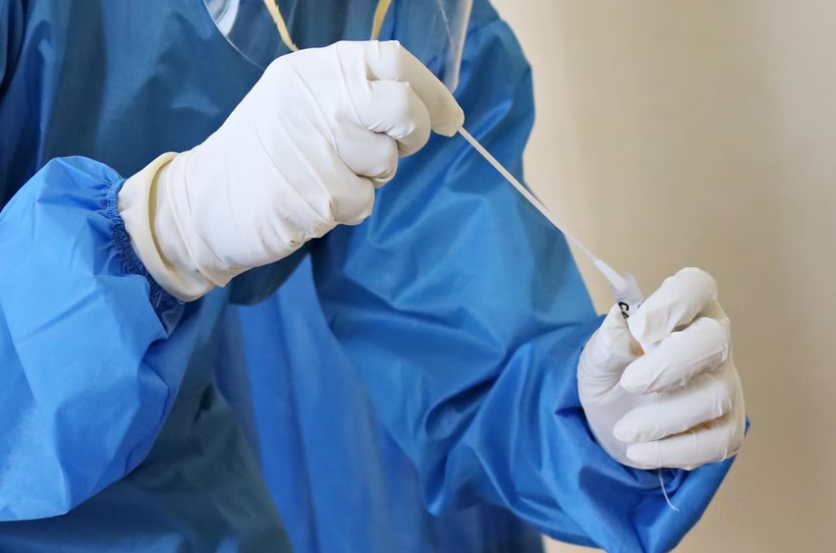
More than seven in 10 people in England have been infected with COVID-19 since the beginning of the pandemic, according to the Office for National Statistics.
England COVID: seven out 10 people have COVID.
The estimate suggests that 71% of people in England had caught COVID between April 27, 2020 and February 11, 2022, according to The Guardian.
The Omicron wave caused the increase in COVID cases in the country. There was the highest prevalence at any time in the pandemic, including in older age groups that had previously had very low rates of infection.
Prof. James Naismith, the director of the Rosalind Franklin Institute at the University of Oxford, said that the total number of infected people was increasing rapidly when the data stopped. This means that the majority of people in the UK now have COVID-.19.
The analysis used a sample of 535,116 people who completed one or more tests as part of the UK coronavirus infection survey or CIS, which covers people over the age of two years living in private households.
Longest COVID-19 Infection Recorded
Doctors from the United Kingdom have documented the longest COVID-19 infection on record. The patient they treated had detectable levels of the virus for more than 505 days, or 16 months, in total.
The unnamed patient had other underlying medical conditions and died in the hospital back in 2021. Persistent infections like this are still rare, according to the London medics.
Most people naturally clear the virus, but the patient in question had a very weak immune system. Chronic infections like these need studying to improve the doctor's understanding of COVID-19 and the risks it can pose.
According to BBC, the patient first caught COVID-19 in early 2020. They had symptoms and the infection was confirmed with a PCR test.
The patient was in and out of the hospital several times for more than 72 weeks for both routine checks and care. On each occasion, about 50 in all, the patient had tested positive, meaning the patient still had COVID-19.
The doctors from King's College London and Guy's and St. Thomas' NHS Foundation Trust say detailed lab analysis revealed the same infection instead of repeated bouts.
The patient could not shake the infection, even after being given several antiviral drugs. This is different from long COVID, where the symptoms persist after the infection has gone, according to AP News.
One of the medics presenting the findings at a medical conference, the European Congress of Clinical Microbiology and Infectious Diseases, is Dr. Luke Blagdon Snell.
Dr. Snell told the BBC that these were throat swab tests that were positive each time. The patient never had a negative test. They could tell that it was one continuous infection because the genetic signature of it, the information that they got from sequencing the viral genome, was unique and constant in that said patient.
In March 2020, a COVID patient saw signs of improvement after taking a breast cancer drug.
In May 2020, doctors found an antibody from a former SARS patient that blocked the COVID-19 virus.
Related Article: COVID-19: Experts Say Coronavirus Can Spread Even After Patient's Death
This article is owned by Tech Times
Written by Sophie Webster
![Apple Watch Series 10 [GPS 42mm]](https://d.techtimes.com/en/full/453899/apple-watch-series-10-gps-42mm.jpg?w=184&h=103&f=9fb3c2ea2db928c663d1d2eadbcb3e52)



